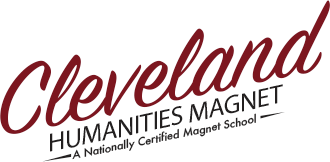12th Grade
“What Do I Know?: A Survey of Modern Thought”
“There is no desire more natural than the desire for knowledge.”
Michel de Montaigne
“What do I know?” was the personal motto of Michel de Montaigne (1533-1592), and it is the question that guided him in writing one of the great classics in the history of the humanities, The Essays of Montaigne. In order to remind himself of its importance, and also of how little he actually knew, he had a medal coined with the words Que sais-je? (What do I know?) which he wore on a chain. The quest for and questioning of knowledge that guided Montaigne has continued to be the driving force for great philosophers, thinkers, artists, and writers throughout the Modern era. In your educational career in CORE, you too have been on your own intellectual journey of both pursuing and questioning what there is to know in this world and CORE 12 will ask you to continue this investigation of what it means to “know” something.
UNIT 1: THE BIRTH OF THE MODERN WORLD: A Study of the Rise of Rationalism and the Individual
In this unit, we will focus on the Early Modern Era (16th-18th Centuries). Specifically, we will look at the Enlightenment’s shift away from faith and the Church to new found progress, which relied on science and rational thinking. We will investigate the ways in which reason and skepticism function in philosophical arguments, literary characters, and cinematic portrayals. Below are the topics, readings, and thinkers that will be covered in the various sections of CORE:
AP Literature: Shakespeare’s Hamlet
Philosophy: Montaigne’s Essays, Descartes’ Rationalism, Hume’s Empiricism, Kant’s Epistemology
Social Institutions: Isaac Newton and other Scientific Revolution Thinkers, Adam Smith’ Capitalism, The economic theories of Thomas Malthus and David Ricardo
Digital Humanities:
Unit 2: A WORLD AT WAR: Alienation and Absurdity in the First Half of the Twentieth Century
In this unit, we will focus on the early 20th Century. Despite the hope of progress and optimism that came from the rise of rationalism, we will look at what “goes wrong” as the “Enlightened” ideas of 17th-19th century Europe come crashing down in two horrific world wars. Partnering with Facing History and Ourselves, we will investigate what can happen when reason is taken to an extreme, and the subsequent human experience of alienation and absurdity. Below are the topics, readings, and thinkers that will be covered in the various sections of CORE:
AP Literature: Tolstoy’s The Death of Ivan Ilyich, Camus’ The Stranger
Philosophy: Freud’s Psychoanalytic Theory, Sartre’s Existentialism, Kosinski’s Painted Bird
Social Institutions: Selections from Facing History and Ourselves’ Holocaust and Human Behavior
Digital Humanities:
Unit 3: A TWILIGHT STRUGGLE: A Case Study of Language & Geopolitics during the Cold War “Language is a Game”
In this unit, we will provide students with a case study of Ludwig Wittgenstein’s revolutionary approach to understanding the role of language in shaping thought. “The limits of our language,” he writes, “mean the limits of our world.” While capturing the spirit of the “language game”, students will explore the Cold War, as well as various pieces of literature that demonstrate the ways in which figurative language shape our thinking and understanding of the world. Below are the topics, readings, and thinkers that will be covered in the various sections of CORE:
AP Literature: Morrison’s The Bluest Eye and Song of Solomon, Hurston’s Their Eyes Were Watching God, and Atwood’s The Handmaid’s Tale
Philosophy: Wittgenstein’s Linguistic Philosophy, Rorty’s Linguistic Pragmatism
Social Institutions: Karl Marx’s Socialism, American and Soviet Intervention from 1945-1991
Digital Humanities:
Unit 4: WHAT DO WE DO NOW?: A Case Study of Contemporary History and Thought
To conclude the year, this unit builds on one of the major tenets of postmodern thought which holds that our identities are not fixed or the expression of some internal set of qualities. Rather, our identities are constructions of contingencies, socialization, and linguistic descriptions. These descriptions come at us from every possible direction: the media, our society, our friends, families, etc. Dominant descriptions are also never fixed; rather, meanings are always in flux, ever-shifting, and dependent on the dominant discourse of the moment. In this unit students will ask themselves what world they would like to create as they write and produce short films embodying their vision. Below are the topics, readings, and thinkers that will be covered in the various sections of CORE:
AP Literature: AP Exam Preparation, Script Writing
Philosophy:
Social Institutions: Juan J. Linz & Alfred Stepan’s Problems of Democratic Transition and Consolidation, Selections from Major News Publications
Digital Humanities:


